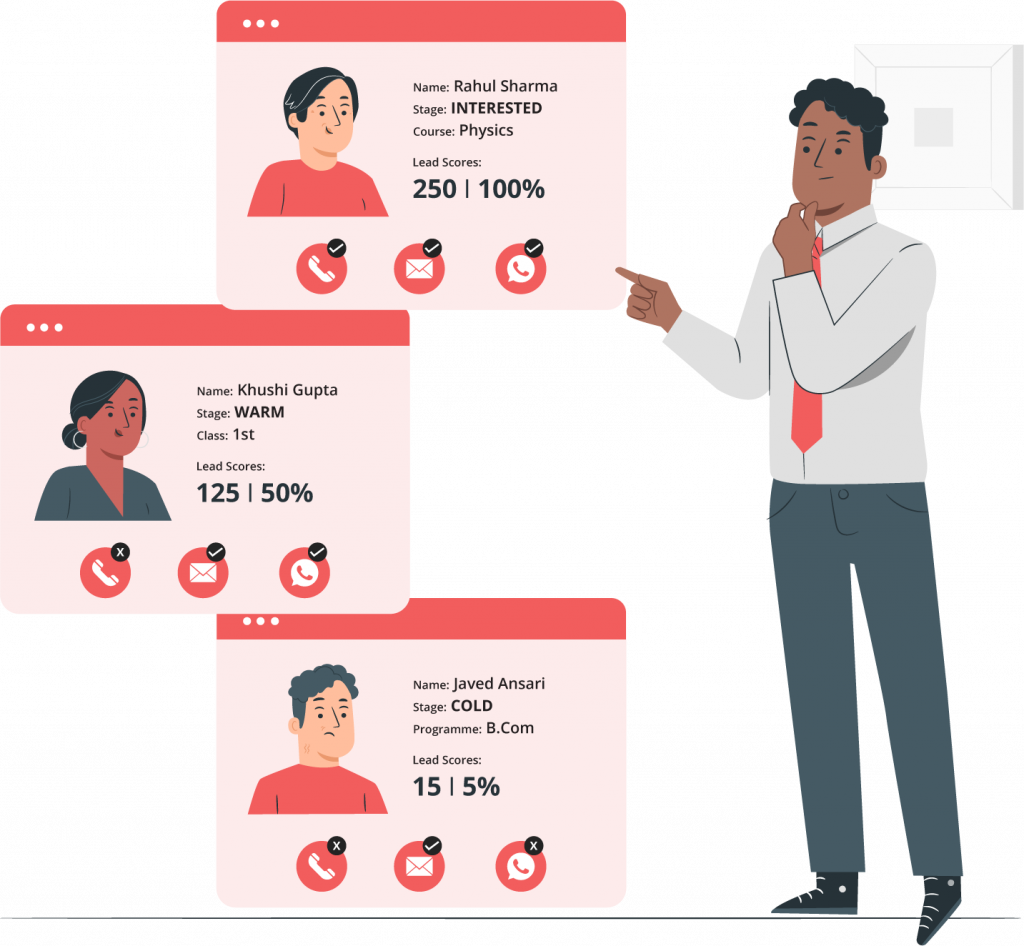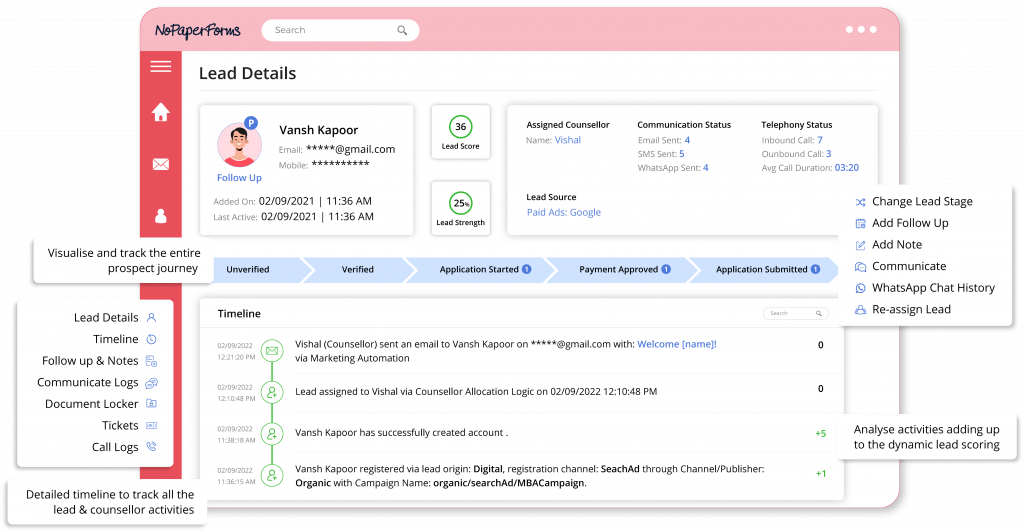Welcome to the Meritto’s (formerly NoPaperForms) blog! In this blog, we’ll delve into the topic of sales communication in a CRM system and provide you with valuable insights to enhance your understanding. Our aim is to help you grasp the diverse methods through which sales representatives engage with customers and prospects within the platform. By exploring activities like email correspondence, phone calls, text messaging, and appointment scheduling, we’ll guide you on how to optimize these communication channels, establish a centralized repository for customer data, and ultimately boost the efficiency and effectiveness of your sales process. So, let’s dive in and explore the world of sales communication in CRM systems together!
What is Sales Communication?
Sales communication in a CRM system encompasses the diverse methods through which sales representatives engage with customers and prospects within the platform. This encompasses activities such as email correspondence, phone calls, text messaging, and appointment scheduling. The CRM allows sales reps to monitor customer interactions, maintain up-to-date customer information, and oversee their sales pipeline. The objective of sales communication within a CRM is to enhance the sales process’s efficiency and effectiveness by optimizing communication channels and establishing a centralized repository for customer data.

The goal of sales communication is to establish and maintain strong relationships with customers, clients, and other stakeholders in order to generate sales, increase revenue, and build brand loyalty. It includes a variety of communication channels, such as email, phone, social media, and face-to-face interactions, and can be used to communicate information about products, services, and promotions, as well as to provide customer service and support.
Need for Sales Communication in the Education Industry
Effective sales communication is important for educational institutions, as it can help to promote the institution, attract students, and build relationships with potential donors, alumni, and other stakeholders. Some specific examples of how sales communication can be used in the education industry include:
- Marketing and advertising campaigns to promote the institution and attract new students
- Communicating with current students, parents, and faculty to keep them informed about the institution and its programs
- Building relationships with other educational institutions to establish collaborations and partnerships
By effectively communicating the value and benefits of their institution, educational institutions can build trust and credibility with their target audience, which can lead to increased enrollments.
Using an Education CRM for Sales Communication
There are several benefits to having sales communication in a Education CRM, including:
- Improved efficiency: It allows counselors and sales representatives to manage their contacts and communication in one central location, which can save time and improve efficiency.
- Better organization: This helps keep track of customer interactions and information, which can help them stay organized and better manage their sales pipeline.
For example, Meritto’s (formerly NoPaperForms) Lead Nurturing feature allows academic counselors and sales representatives in the education industry to prioritise engagement through Lead Score and Lead Strength.

- Increased visibility: It allows managers to see how their counselors and sales reps are interacting with customers and prospects, which can help them identify areas for improvement and provide guidance.
- Better collaboration: It enables information exchange and helps collaborate with each other, which can improves the overall nurturing process.
- Increased sales: By providing sales reps and counselors with the tools and information they need to effectively communicate with prospective learners and manage their sales pipeline, a CRM can help increase sales.
- Better data-driven decisions: It can help track and analyze customer data, which can help them make data-driven decisions that lead to increased sales and revenue.
Features of Sales Communication in a CRM
Now the features of sales communication in a CRM system can vary depending on the specific platform, but some common features include:
- Contact management: that allows storing and management of lead information, including names, addresses, phone numbers, and email addresses.
- Email integration: Many CRMs allow users to send and receive emails directly within the platform, and track email interactions with prospective learners.
- Call and meeting scheduling: It can enable sales reps and counselors to schedule calls and meetings with customers and prospects directly within the platform.
- Task management: It’s using which one can create and manage tasks, such as following up with a prospective learner after a call.
- Lead management: It can allow sales reps to manage leads, including tracking their progress through the enrolment pipeline. Meritto offer a one-view lead profile as part of it’s Education CRM that empowers counselors and sales reps with all the data they need to drive and scale your enrolments. Here’s how it looks like:

- Reports and analytics: A CRM can generate reports and provide analytics on sales performance, customer interactions, and other data.
- Mobile access: Some CRMs have mobile apps that allow sales reps to access the platform and manage their sales activities while on the go.
- Communication Templates: A CRM can have pre-built templates for communication with customers and prospects, which can be easily customized to the specific needs of the sales rep.
If you’re a educational organisation looking to kickstart or scale your sales communication efforts, Meritto is the right place for you to be.




